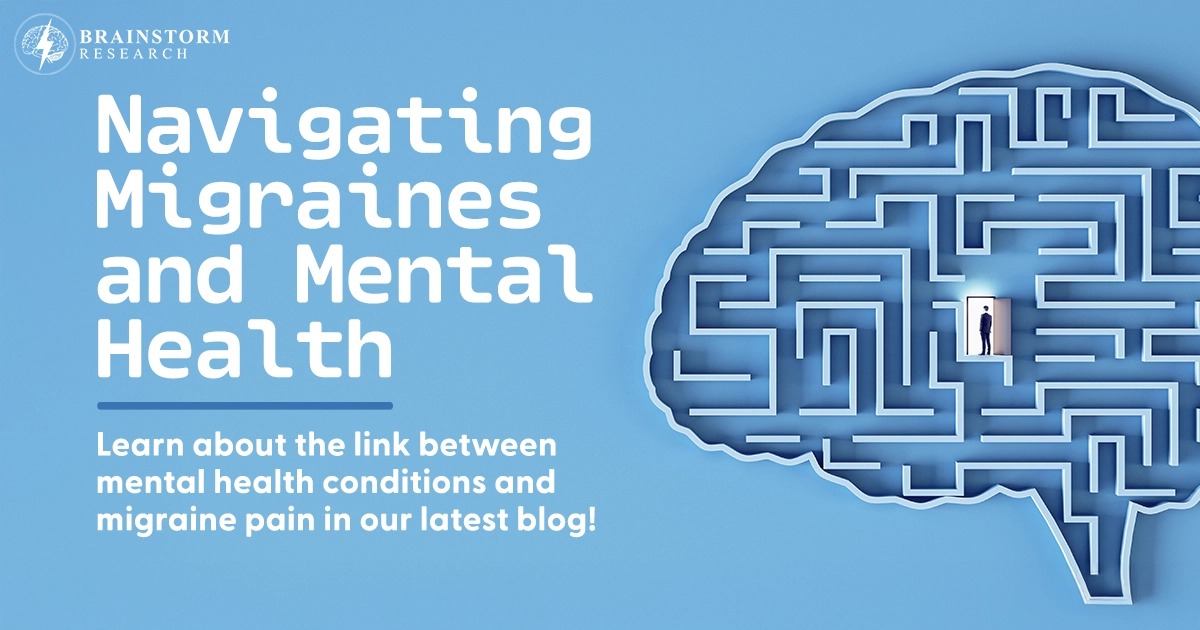Migraines are more than just severe headaches. They’re complex neurological conditions that can significantly impact every aspect of a person’s life. While physical pain is often the most prominent symptom, the connection between migraines and mental health is increasingly recognized as a crucial area of study and treatment. This blog explores the intricate relationship between these two conditions and highlights the importance of addressing both for comprehensive migraine management.
The Intertwined Nature of Migraines and Mental Health
Migraines and mental health conditions like anxiety and depression often coexist. This comorbidity might not be coincidental; research suggests a bidirectional relationship. Individuals with migraines are at a higher risk of developing mental health disorders, and those with mental health conditions may experience more frequent and severe migraines.
Anxiety and Migraines: The anticipation of a migraine attack can trigger anxiety, creating a vicious cycle. Chronic stress, a known migraine trigger, also contributes to anxiety disorders. The constant worry about when the next migraine will strike can significantly impact daily life and mental well-being.
Depression and Migraines: The debilitating nature of chronic migraines can lead to feelings of hopelessness and isolation, increasing the risk of depression. The chronic pain and limitations imposed by migraines can disrupt sleep, work, and social activities, all of which are factors that can contribute to depressive symptoms.
The Neurological Connection
The shared neurological pathways involved in migraines and mental health conditions provide a biological basis for their connection. Neurotransmitters like serotonin, which play a role in mood regulation, are also involved in migraine pathophysiology. Changes in these neurotransmitter levels can contribute to both migraine pain and mood disturbances.
The brain regions involved in pain processing, such as the amygdala and the prefrontal cortex, are also implicated in emotional regulation. This overlap suggests that disruptions in these areas can contribute to both migraine symptoms and mental health challenges.
Addressing Both Migraine and Mental Health
Effective migraine management may require a holistic approach that addresses both the physical and psychological aspects of the condition. Integrated treatment plans that combine medication, lifestyle modifications, and mental health support can significantly improve outcomes.
Therapy and Counseling: Cognitive behavioral therapy (CBT) and other forms of psychotherapy can help individuals develop coping strategies for managing both migraine pain and mental health symptoms. Therapy can address anxiety, depression, and stress management, empowering individuals to take control of their well-being.
Medication Management: Certain medications, such as antidepressants and anti-anxiety drugs, can be beneficial for both migraines and mental health conditions. Working with a healthcare professional to find the right medication and dosage is essential.
Lifestyle Modifications: Regular exercise, a balanced diet, adequate sleep, and stress reduction techniques can play a significant role in managing both migraines and mental health. Mindfulness and relaxation techniques can also be beneficial.
The Role of Clinical Research
Clinical trials are crucial for developing new and effective treatments for both migraines and mental health conditions. These studies investigate the efficacy of novel therapies, explore the underlying mechanisms of these conditions, and provide valuable insights into integrated treatment approaches. Participating in clinical research can offer access to cutting-edge treatments and contribute to advancing our understanding of these complex conditions. Explore enrolling clinical trials here.


